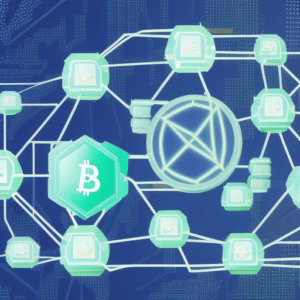Web3 has the potential to change the Internet as we know it, but it faces several challenges and risks.
In this article, we will explore the top 10 challenges and risks associated with the development of Web3.
The Web3 Research Institute is reader-supported. When you buy through links on this site, we may earn a commission at no cost to you.
1. Security and Privacy
Alhhough Web3 is relatively secure and private, there are still some risks because people have full control over their data. If people are not careful about how they store the keys to their accounts and how they share information online, hackers can access their accounts and steal their cryptocurrencies, tokens, or data. In addition, hackers can take over an entire network if they gain control of more than half of the computers in the network.
2. Usability
Another challenge facing Web3 is that people need to have a lot of technical knowledge to use it. Because Web3 is still being developed, it remains difficult for many people to understand how it works. This could steer people away from using Web3 altogether. To reach its full potential, Web3 needs a better user experience.
3. Market Volatility
Cryptocurrencies and tokens are not as stable as other investment options. Their prices can change quickly and unpredictably. People need to be aware of this risk before making any investment decisions.
4. Fraud
There are a lot of financial risks when it comes to Web3 because the cryptocurrency and token markets are relatively unstable. For example, some fraudsters have engaged in practices that inflate token values, such as creating hype around a project, to attract other investors. They have then cashed out, making a lot of money and leaving others with devalued cryptocurrencies and tokens. Because no central authority regulates cryptocurrencies or token transactions, it is relatively easy for fraudsters to get away with their schemes.
5. Market Competition
Although Web3 is designed to be decentralized, there is a risk that a few companies could control the industry. Several well-funded startups are already gaining a significant market share. If they continue growing, they will have an advantage over smaller competitors.
6. Interoperability
One challenge with Web3 is that it is still being developed. This means that many companies are developing different networks. These networks might not be compatible with each other. If this happens, it could create chaos and confusion for people. It could also fragment the Internet into many separate data stores, making it harder to find information and increasing the risk of data loss.
7. Scalability
Another challenge for Web3 is scalability. This means that as more people use Web3, blockchain networks must be able to handle more traffic and transactions. Networks that cannot keep up with demand will become overloaded, slow, and unusable. For Web3 to be successful, blockchain networks will need to be able to scale quickly, as demand for decentralized applications (dApps) and other technologies could grow rapidly.
8. Energy Consumption
Web3 technologies come with a lot of challenges when it comes to sustainability and energy consumption. This is because blockchains are decentralized and need a lot of computing power to function. The most popular blockchains today, Bitcoin and Ethereum, use as much energy as countries like Ireland and Qatar. If Web3 continues to grow in popularity, the carbon footprints will likely grow as well.
9. Governance
There is a risk that Web3 governance models may not be effective. It is still unclear how to effectively decentralize control of blockchain networks among token holders. Many decentralized autonomous organizations (DAO) today have been unsuccessful because they have not been able to find a way to make everyone satisfied.
10. Laws and Regulations
There are several legal and regulatory risks when it comes to Web3. Blockchain-based applications, such as cryptocurrencies and tokens, are still in their early stages of development. There are few frameworks in place to regulate them. Some governments may soon implement stricter laws and regulations, which could have a major impact on the industry. However, enforcing compliance may be difficult because no central authority governs Web3.
Related Articles

The 55 Best Web3 Certifications in 2023
Read our list to find the best Web3 certification that can help increase your chances of advancing in this exciting field!

The 35 Best Web3 Grants in 2023
To help Web3 professionals keep up with the latest trends and technologies, we’ve compiled a list of 35 grants that are currently available.

The 104 Best Crypto White Papers
If you’re looking for the best crypto white papers, look no further! In this roundup, you’ll find our 104 top picks of the year.
